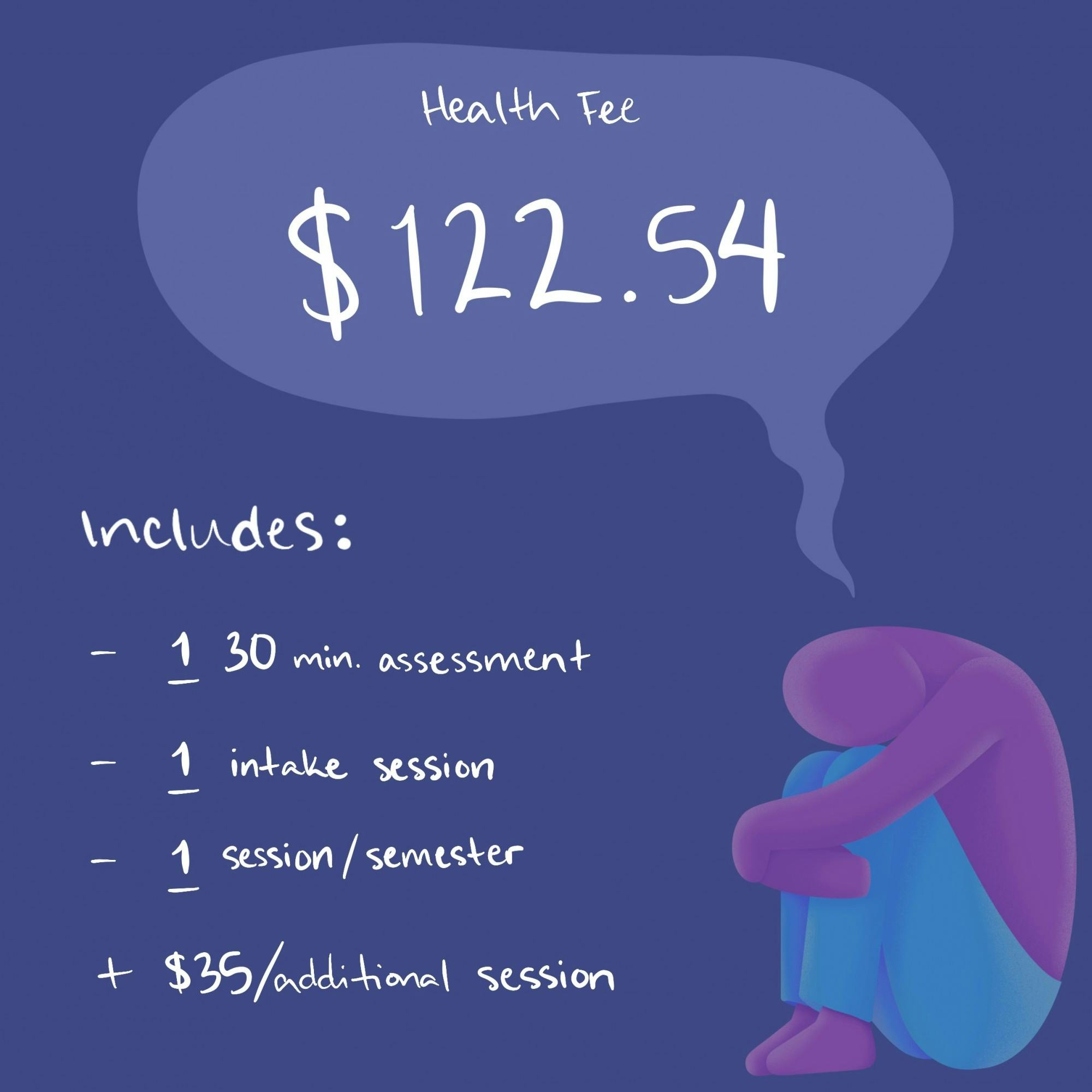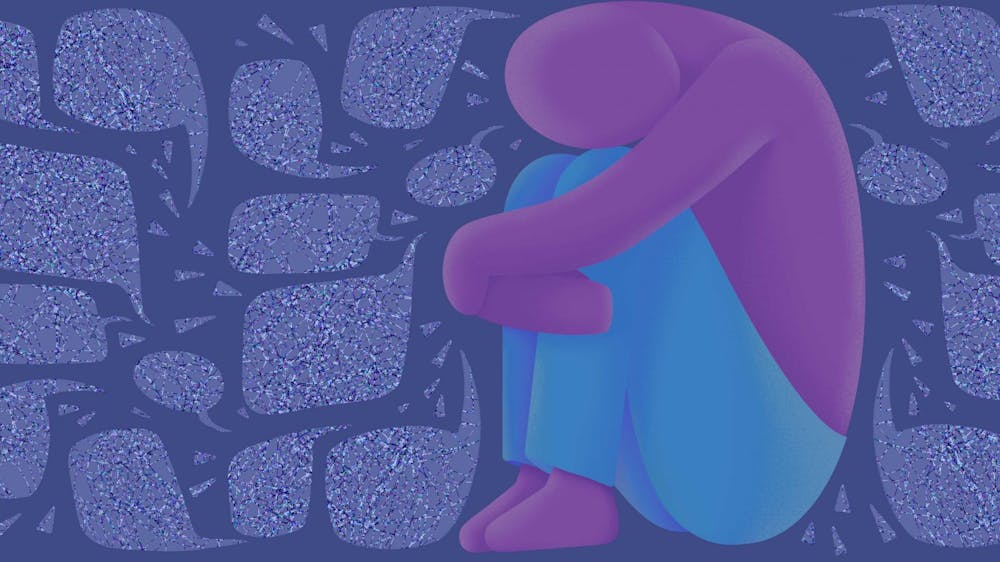The COVID-19 pandemic brought an onslaught of mental health challenges, tripling the prevalence of anxiety disorders and quadrupling the prevalence of depressive disorders among Americans. The mental toll of existing in a world of constant grief, loss, change and sacrifice is difficult to overstate.
When facing mental health challenges, Americans are often told the responsible next step is to prioritize mental health — often through therapy. But seeking mental health care is not a matter of mere responsibility. It is directly predicated on financial status.
IU encourages students to seek care through Counseling and Psychological Services. While CAPS recently took steps to improve its financial accessibility by offering one free session per semester, there is a long path ahead to ensuring comprehensive mental health care is financially accessible to all students.
The pandemic makes the need for student mental health care services more urgent than ever. CAPS is underfunded and needs resources to hire more staff to provide adequate care to students.
CAPS currently employs a total of 25 psychologists, psychiatrists, social workers and counselors, according to its website. The center would need to hire seven more full-time counselors in order to meet the one counselor to 1,500 student ratio recommended by the International Association of Counseling Services.
Meeting or exceeding this ratio is necessary to respond to increasing student demand for care. IU students’ mental health is on par with the rest of the nation. They face increased mental health challenges due to the pandemic and are increasing the demand for mental health care.
CAPS Director Dr. Denise Hayes said the program has recently seen students grappling with their or a family member’s job loss, concern about ill friends and family or death of a loved one. Social isolation — along with the grief surrounding it — has also driven IU students to seek help through CAPS, she said.
“These things are always there, but they’re certainly at a higher rate,” Hayes said.
As they stand — resource-deprived and unaffordable — CAPS’ services are not comprehensive or accessible enough to meet this demand, however.
Currently, the IU student health fee — $122.54 this semester — includes one 30-minute triage assessment for first-time CAPS clients, one full intake session with a counselor and one full individual counseling session per semester. This is a slight improvement from the previous offer of one triage assessment and one intake session.

Beyond these initial appointments, each additional full session costs $35 to $60 a session, depending on whether the student has paid the health fee. Other therapy practices in Bloomington can range anywhere from less than $40 to more than $150 a session.
Therapy costs are a significant deterrent to accessing mental health care. A 2018 study found more than half of adults with a serious mental illness and an unmet need for mental health services cited the high cost of care as their primary barrier to receiving services.
Financial barriers to mental health care access disproportionately affect members of racial minority groups. Black people are 50% less likely than white people to have access to mental health care, according to a study by the National Institutes of Health.
A combination of racial trauma, disproportionate consequences of COVID-19 and the ever-present threat of police brutality make access to mental health care for members of racial minority groups — including IU students — a priority. CAPS’ high costs and limited resources show IU doesn’t treat this access as a top priority.
Students have the option of filling out a fee reduction request to lessen the financial barrier, but this is not made clear to students, and it’s unclear how much this reduction would cover. The CAPS website encourages students to speak with their counselor about financial hardship, but this lack of transparency about fee waivers could dissuade students who may be intimidated by this conversation or are considering counseling but not yet CAPS clients.
"Most students, 99.9%, indicate what they can afford to pay, and we generally go with that," Hayes said. "There are a few times where students say they can't afford to pay anything, and we also respect that."
One full appointment beyond the triage and intake appointments is not sufficient for students to comprehensively address mental health challenges. While I would love to live in a world in which I could confidently manage my mental health after a 50-minute therapy session, that simply is not the case.
CAPS operates on a brief therapy model, which is designed to focus on the primary event affecting a student’s mental health instead of more holistic care. Rather than serve fewer students more consistently, CAPS spreads its existing resources to serve a greater number of students for fewer sessions.
“If we had a waitlist, we would get full, and then when someone had a space because a student said they were in a good place to stop, we would take the next person,” Hayes said.
“That’s what would happen if we were seeing people every week for as long as they wanted to,” she added. “Instead of that model, we see people quickly to make sure they are safe, talk about their available options and then focus on the most pressing issue.”
Students attend CAPS for an average of eight to 12 sessions per concern and can return later to discuss a new primary concern, Hayes said.
This model was not designed for a pandemic, when student concerns are multifaceted, everchanging and stemming from multiple sources, though.
Even outside of a pandemic, consistent mental health care greatly improves outcomes for people experiencing mental health concerns. Mental health care should not be treated only as a reaction to a difficult event, but as a proactive part of maintaining wellness. The cost of care does not afford students that opportunity.
The university must increase funding for CAPS, which would allow the service to expand its staff and adjust its care model to consistently serve more students for longer periods of time.
Few things in a pandemic are constant, but access to mental health care should be.
Maddie Butler (she/her) is a sophomore studying international law and institutions and Arabic. She is the Director-General of Indiana Model United Nations.




